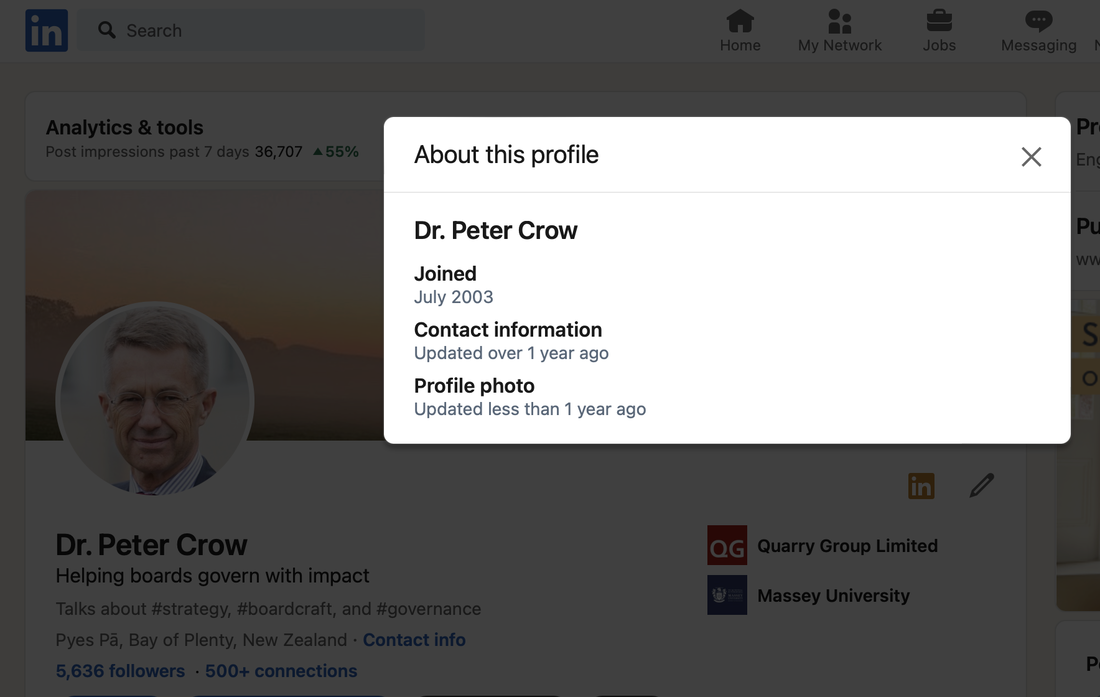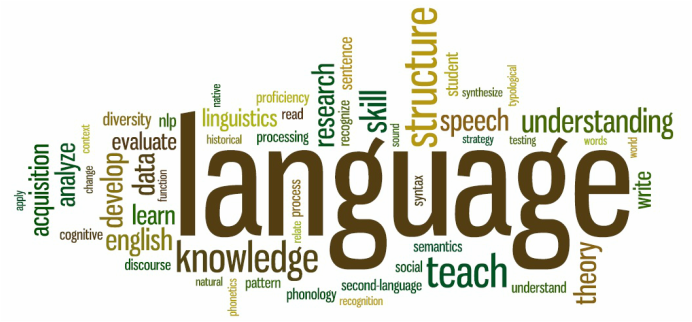|
Questions of where we came from, why various things happened or evolved as they did, and what we can learn from them to guide us as we live our lives fascinate many people—me included. From neo-lithic henges and stone circles, to the development of more recent industrial-scale enablers (notably, the wheel, the printing press, manufactories, the motor car and the Internet), man has long been fascinated with history, innovation and possibility. When we ponder historical developments and innovations such as the examples noted here—and other foundational things like language, writing, mathematics, ethics and civics—we gain insight to apply in our daily lives or use as a springboard to try to make new discoveries. This maxim applies personally, in family and social groups, and more broadly in society—and if we ignore it, it may be to our peril. The idea of learning from those who have gone before us is applicable in organisations too. How else would individuals and teams know what to do? This is what learning and development departments organise, and why professional development programmes exist. In the realm of boards and boardwork, relevant questions include three I have been asked most often over the past two decades: What is corporate governance; what is the role of the board; and, how should governance be practiced? That these questions are asked so often suggests directors (at a population level) lack the knowledge needed to be effective. Helping directors and boards govern with impact is a calling for me, so when Mark Banicevich invited me to explore the history of corporate governance—well, make a fleeting visit across a few high points in the Western context—I jumped at the chance. Hopefully, the commentary is helpful. Do let me know whether you agree or disagree with the various perspectives, and why, because I’m no Yoda (use the comment section below, or contact me directly). Life is a learning journey for me as well!
0 Comments
When I was a boy, milk was free (I was raised on a dairy farm), but you could buy it in a glass bottle with a silver foil top (pasteurised but not homogenised) for four cents a pint at the general store. Television (once we got one, in 1969, to see the Apollo 11 moonshot) was a grainy, black-and-white experience, with a single channel available. You got to watch whatever the broadcaster chose to deliver across the airwaves. Now, milk costs several dollars a litre, but it comes in many different styles (blue, light blue, skim, lo-fat, full-cream, calcium fortified, lo-lactose and UHT—as well as products called milk that contain no milk at all, such as oat milk and almond milk, in a wide variety of packaging options). Television has changed too: from a take it or leave linear broadcast experience via rabbit-ear antennae, to a plethora of video-on-demand (streaming) options via the internet. These are but two of thousands of examples that illustrate the onwards match of technology. Oh how life has changed, even in my lifetime. The onward march has also affected the way we communicate, not only personally with family and friends, but also with clients, suppliers and the general public as well. The notion of using a fountain pen to handwrite a letter, or making a toll call, seems quaint now—but some of us still value these moments. The emergence of social media has extended our reach in ways not thought possible twenty years ago. Sharing business cards, once commonplace, is now rare. If people want to contact me or learn about me, they tend check my LinkedIn profile (notice the assumption, that I have one), even before mentioning Google or asking about a website or blog. And that brings me to the point of this muse, which is to share one aspect of a conversation with an esteemed company director, in the hope it might encourage others committed to serving the director community. Yesterday, I was asked about the role of social media in my business life, what channels I use and how long had I been using these. The first two questions were readily answered; the third took a little longer—because I needed to find the menu option!
Thank you for permitting me to share my experience. I hope anyone considering using social media or a blog as a channel might be encouraged—not only to do so, but to stick at it over the longer term. My journey to date has been fulfilling; I have met thousands of people from many walks of life and, I hope, they have valued the interaction as much as I have.
I'm in London for the weekend, an interlude between inter alia commitments hosted by the Institute of Public Administration (a masterclass for board chairs, in Dublin); Lagercrantz Associates (a workshop, in Stockholm); and the Baltic Institute of Corporate Governance (a masterclass and the BICG conference keynote, in Vilnius). To work with people across cultures, countries and contexts is a great privilege. Discussions reveal differences in perspective and approach. Yet, some things are consistent, transcending borders and cultures. One example is 'good governance'. Directors everywhere want to know how to achieve good governance. This is a tough request. The problem is that 'good' is a moral qualifier, implying someone or something is morally excellent, virtuous or even righteous. But that is not all it means. A quick check in any dictionary reveals at least 39 other definitions! Which one does a person have in mind they ask for help to achieve 'good governance' or 'good corporate governance'? And what about other directors around the table. Do they have the same understanding or not? It's little wonder that directors have become confused about the role and purpose of the board. Pragmatically, corporate governance is the means by which companies are directed and controlled (Cadbury, 1992), that is, it describes the work of the board. The objective is to produce an agreed level of performance (however measured). 'Effectiveness' is a more appropriate qualifier than goodness. If something is effective it is adequate to accomplish a purpose; producing an intended result. Returning to the question of how to achieve good governance. After reminding the enquirer that so-called best practices offer little guarantee of success (which one is best anyway), I usually steer the discussion away from goodness towards effectiveness (performance), and suggest that Bob Garratt's Learning Board matrix, and the Strategic Governance Framework are useful starting points for a lively discussion at the board table. Once directors acknowledge that high company performance is the appropriate goal, and that success is a function of effectiveness more so than goodness, they start to ask more relevant questions, such as, "What actually matters?" and, "How do I as a director and we as a board become more effective?"
Have you noticed how 'corporate governance' has pervaded the modern lexicon? The term is used in all manner of contexts nowadays. Some are appropriate and some less so. I wrote about this last year, off the back on a comment made by Rob Campbell. Here's a couple of fresh examples that I've heard used in the last sixty days:
Both of these examples might sound a little contrived, but they are not. All three phrases were spoken, spontaneously and in my hearing, by capable and well-intentioned people. The people in the room knew what was meant, I think. However, these three vignettes set me thinking. Is our usage of the term 'corporate governance' starting to change—away from the original intention (describe the functioning of the polity, i.e., the board of directors) to something different, or have we become somewhat lazy in our usage? I'd be interested in your views on this one!
Have you ever arrived at the completion point of a major project, breathing heavily (as it were) having expended much mental and emotional (even physical) energy on the journey, only to find yourself twiddling your thumbs and wondering about the challenges that lie ahead? While some folk are anxious to move on quickly (those defined by busy-ness or a fear of idleness perhaps?), others happily use the time to read—both to relax and to recharge the mind for the journey ahead. I have been happily working my way(*) through the following books since completing the doctoral dissertation on 1 June. I commend them to you and, if you choose to open the front cover, trust you gain much enjoyment from the experience.  Why things matter to people, Andrew Sayer. Sayer shows how social theory and philosophy need to change to reflect the complexity of everyday ethical concerns and the importance that people attach to dignity.  Akenfield, Ronald Blythe. This modern classic gives voice to the inhabitants of a rural village in Suffolk, England, was an early and shining example of what an oral history could be. 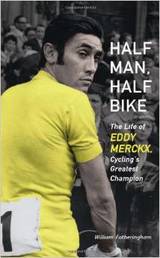 Half man, half bike: The life of Eddy Merckx, William Fotheringham. A biographical narrative of cycling's greatest rider. On the bike, Merckx had an insatiable appetite for victory. Off the bike, he was sensitive and surprisingly anxious. 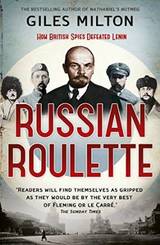 Russian Roulette, Giles Milton. An historical account of how British spies thwarted Lenin's attempts to destroy British India, the intrepid activities of which led to the formation of MI6. 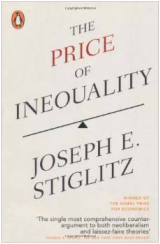 The price of inequality, Joseph Stiglitz. Stiglitz discusses the social impacts and causes of inequality, and the economic and political impacts of what appears to be a growing problem. 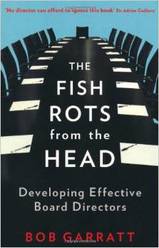 The fish rots from the head, Bob Garratt. Garratt's much acclaimed book, considered a classic by many, clarifies and integrates the roles and tasks of directors, and includes a programme to help them develop the skills and approach required to do their job well.  To the edge of the world, Christian Wolmar. A fascinating history of he construction and operation of the trans-Siberian Railway, including its impact on Russian society and relations with neighbours.  One summer: 1927, Bill Bryson. A narrative of the reckless optimism and delirious energy that characterised America in the summer of 1927. (*) This is very much a work-in-progress. As of 4 July, the 'score' is four books down and four to go, and several new research and board practice ideas to boot!
A muse that I wrote yesterday asked a series of questions about company ownership. It stimulated quite a bit of interest, albeit for reasons other than I expected. Having discussed the matter with several commentators, I now know why. It turns out that one of the underlying assumptions upon which the muse was based—that companies have owners—was wrong. How often have you heard someone say they 'own a portion of <company name>' or that they are 'company owners'? These statements, while plausible, are actually incorrect. People (individuals, groups, other companies) own shares in a company, they don't own the company (or a portion of the company) directly. The company is an entity itself. It issues shares ('bundles of intangible rights') and these can be owned or traded, as is so ably explained here (see clause 2). Thank you to those people that contacted me to point out my error. The phrase 'company owner' has been removed from my vocabulary! However, the notion of 'ownership' remains. I hope this brief note goes some way to putting the record straight. Please contact me if you would like to know more.
 The first day of ICMLG2015 has been completed, with a very pleasant dinner cruise on Auckland Harbour. The three-hour cruise gave delegates time to enjoy the view back to the city across one of the world's great harbours; to get to know each other better; and, to reflect on the conference to date. The conversations were upbeat—both for the venue and logistics (thanks AUT and Massey) and the topical nature of the presentations and discussion on Day 1. The following points provide the tiniest of glimpses into some of the conversations and thinking so far:
In addition, many new relationships were formed, ideas for collegial working groups were discussed and several invitations were issued for cross-border and multinational cooperation. (Gosh, that sounds like the OECD or the United Nations!) I'm looking forward to seeing and hearing how the discussion builds and develops on Day 2, starting with Andrea Thompson's keynote.
Dorothy McKee, University of Ulster, Northern Ireland, presented a fascinating paper that explored the extent to which executive development (read professional development for executives) that focusses on leadership, governance and business ethics has a positive impact on business performance. The research was insightful, for it bridges the oft-discussed chasm that exists between academia and practice. Courses bathed in research rigour and practical application are far less common than you'd expect. I have been critical of the way many academics happily resist any activities that might see them becoming tainted by 'the real world'. Yet McKee walked right into the centre of the issue, and intentionally so, to try to gain some understanding as to what is really going on and what needs to go on to ensure executives are appropriate equipped to to lead and direct well. She surveyed and interviewed a group of business executives who are also graduate business students (Masters level). The findings were very revealing:
While none of these insights were particularly revolutionary, they reinforce the "I think this is correct but can't put my finger on it" perceptions held by many working directors and business executives. The insights provide great guidance for professional bodies (including the Irish Institute of Directors) to inform the development of their professional development programme. They also speak volumes to academics, to get busy and to produce some meaningful theory-based models and frameworks to support the emerging perceptions of skilled and insightful executives. Given the overlap between our research interests and professional backgrounds, McKee and I plan to get together in a few months time, and advance these ideas, with a view to developing some new professional programmes for working directors. If you are interested in learning more, including the possibility of becoming an early adopter, please contact me.
The 3rd International Conference on Management, Leadership and Governance got underway in Auckland New Zealand this morning, with a keynote presentation by Phil O'Reilly, CEO of BusinessNZ. BusinessNZ is the apex organisation that speaks for businesses and those in the private sector in particular. O'Reilly is also the Chair of Business and Industry Advisory Committee to the OECD and of International Labour Organisation a United Nations agency, so he has a strong global perspective. O'Reilly's topic was The Research Agenda in Business. He spoke passionately about the need for high quality research to inform the business community to bring rigour to the 'educated guesses' of many business owners and leaders. O'Reilly suggested that if researchers are to deliver 'value', research needs to be relevant. More specifically, he argued that business needs research that is:
O'Reilly had some interesting ideas including that profit, business and capitalism are not ends in themselves. Rather, they are means: the actual end being successful communities. This was a refreshing comment, because it demonstrated that business has a vital place in the wider social fabric (the community). However, the value of the contribution of business is dependent on high quality research, to help leaders move from educated guesses to robust applicable knowledge. The keynote set a strong tone for the conference ahead: that the academic–practice divide must be bridged, through relevant research that can be used by business leaders to grow strong, high-performance businesses.
What a great question. Throughout my business career, of over thirty years now, the prevailing answer has been 'yes'. However, Peter Thiel reckons the answer to both parts of the question is or at least should be 'no'.
Thiel's thesis, that competition is for losers, and this response to it will get you thinking... Boards and regulators might need to take note. |
SearchMusingsThoughts on corporate governance, strategy and boardcraft; our place in the world; and other topics that catch my attention. Categories
All
Archives
May 2024
|
|
Dr. Peter Crow, CMInstD
|
© Copyright 2001-2024 | Terms of use & privacy
|


